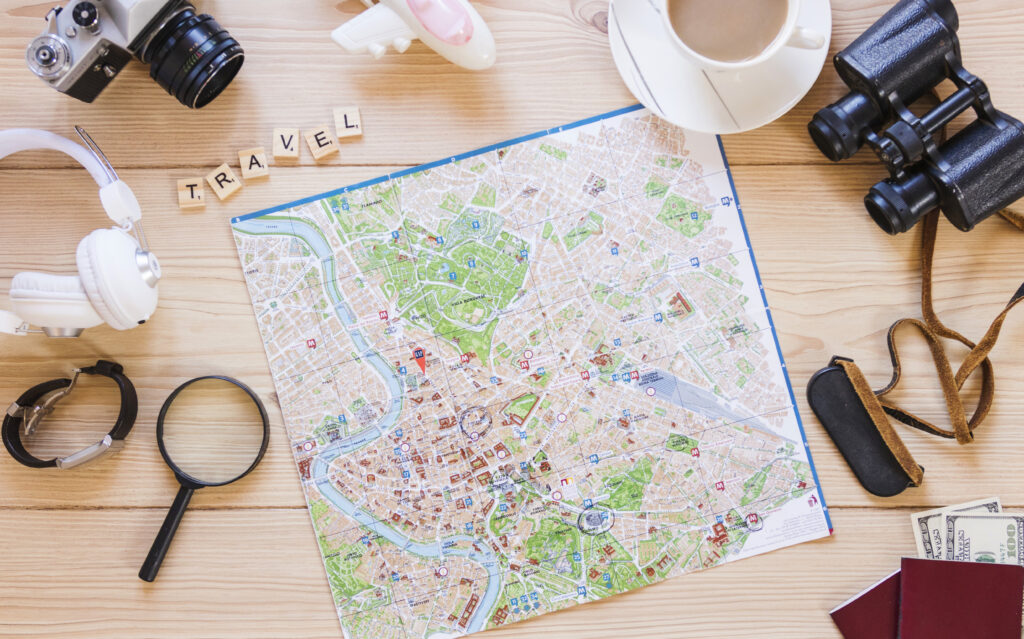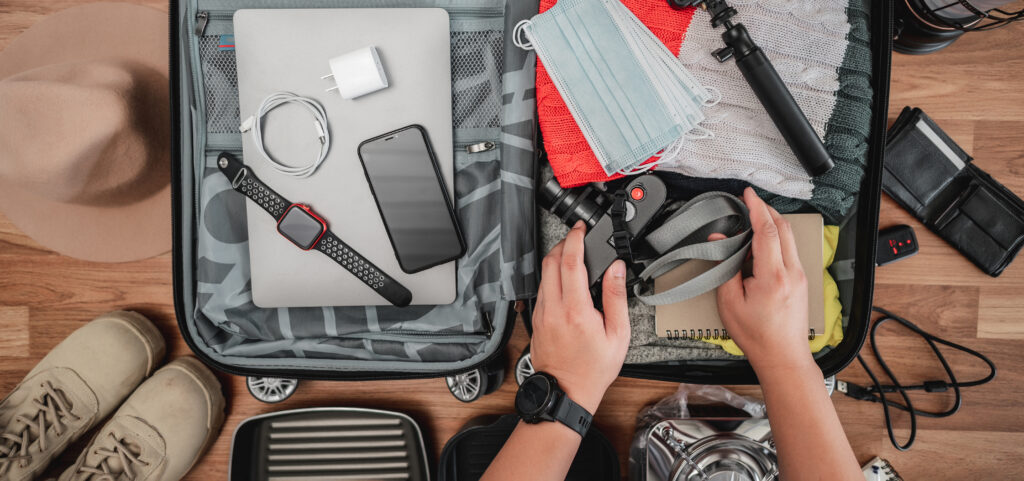Introduction
Traveling is a wonderful and enriching experience that allows us to explore new cultures, meet interesting people, and create lasting memories. For women, in particular, traveling can be a transformative journey that fosters personal growth and self-discovery. However, along with the excitement of travel comes the responsibility of ensuring one’s safety, especially in unfamiliar environments.
“Female Travel Safety” addresses the unique considerations and challenges that women face while traveling, offering practical tips, advice, and resources to help women navigate the world confidently and safely. From solo adventures to group trips, from bustling cities to remote destinations, this guide is designed to empower women travelers with knowledge and strategies to stay safe and enjoy their journeys to the fullest.
In this guide, we will explore key aspects of female travel safety, including risk assessment, cultural awareness, personal security measures, and emergency preparedness. By understanding potential risks and adopting proactive safety practices, women can minimize vulnerabilities and enhance their overall travel experiences.
Whether you’re a seasoned globetrotter or planning your first solo trip, “Female Travel Safety” is your companion for a safe, enjoyable, and empowering travel experience. Let’s embark on this journey together and make every adventure a memorable and fulfilling one.
Researching Destinations Before the Trip

Researching destinations before a trip is a crucial step in ensuring a smooth and enjoyable travel experience. By delving into the details of a destination beforehand, travelers can gain valuable insights into various aspects such as local culture, language, customs, and attractions. One of the primary benefits of pre-trip research is the ability to create a well-planned itinerary tailored to personal interests and preferences. This includes identifying must-visit landmarks, hidden gems, and authentic dining experiences that align with individual tastes. Moreover, researching transportation options, accommodation choices, and safety tips can contribute significantly to a stress-free journey. Additionally, understanding the local currency, tipping customs, and basic phrases in the native language can enhance communication and foster positive interactions with locals. Overall, investing time in researching destinations before embarking on a trip lays a strong foundation for a rewarding and memorable travel adventure.
Checking Travel Advisories
Government websites and reputable travel agencies provide up-to-date information on safety alerts, political instability, health risks, and natural disasters in various regions. It’s essential to monitor these advisories and adjust travel plans accordingly.
Understanding Local Laws and Customs
Every country has its own set of laws, cultural norms, and social customs. Female travelers should familiarize themselves with local regulations regarding clothing, behavior, and interactions to avoid unintentional offenses or misunderstandings.
Packing Essentials for Safety

When it comes to female travel safety, packing essentials play a critical role in ensuring a secure and comfortable journey. Women travelers should prioritize items that enhance their safety and well-being while on the road. Firstly, packing a sturdy and reliable travel lock for luggage is essential to prevent theft and unauthorized access. It’s also advisable to carry a portable door lock or doorstop to reinforce security in accommodations. In terms of personal safety, women should pack a self-defence tool such as a whistle, pepper spray (where legal), or a personal alarm for emergency situations. Additionally, including a first-aid kit with basic medical supplies, prescription medications, and copies of important documents like passports and travel insurance details is crucial. Comfort and hygiene are equally important, so packing items like comfortable walking shoes, appropriate clothing for the destination’s climate and culture, as well as hygiene products and sunscreen can contribute to a hassle-free and safe travel experience. Lastly, staying informed about local customs, laws, and emergency contacts in the destination country adds an extra layer of preparedness for female travelers.
Clothing Choices
Opt for modest and culturally appropriate attire, especially in conservative regions. Comfortable yet functional clothing, including versatile layers and sturdy footwear, can enhance mobility and confidence while exploring.
Safety Gadgets and Accessories
Consider carrying safety gadgets such as a personal alarm, portable door lock, or a discreet self-defense tool. Additionally, secure essential documents like passports, visas, and emergency contacts in a travel organizer or RFID-blocking pouch.
Choosing Safe Accommodations
Choosing safe accommodations is a crucial aspect of travel planning that can significantly contribute to a traveler’s overall safety and peace of mind. When selecting accommodation options, whether it’s hotels, hostels, vacation rentals, or guesthouses, several factors should be considered to ensure a secure stay. Firstly, travelers should research the safety reputation of the neighbourhood or area where the accommodation is located. Reading reviews from other guests can provide valuable insights into the safety and security measures implemented by the property. It’s also important to check if the accommodation offers secure entry systems, such as key card access or 24/7 front desk services, to prevent unauthorized entry. Additionally, verifying that the rooms have functioning locks, safes for valuables, and reliable fire safety measures is essential. For solo travelers or women traveling alone, opting for accommodations that offer female-only dorms or rooms with added security features can provide an extra layer of comfort. Lastly, staying informed about emergency procedures, such as evacuation routes and contact information for local authorities, can help travelers feel prepared in case of unforeseen events. By prioritizing safety considerations when choosing accommodations, travelers can enjoy their trip with greater peace of mind.
Reading Reviews and Ratings
Before finalizing bookings, read reviews from verified guests to gauge the safety, cleanliness, and overall experience of the accommodation. Look for mentions of security measures, helpful staff, and convenient amenities.
Opting for Reputable Lodging Options
Choose established hotels, guesthouses, or homestays with a proven track record of safety and hospitality. Verified platforms and booking sites often offer insights into property safety standards and past guest experiences.
Navigating Transportation Safely
Navigating transportation safely is a critical aspect of any travel experience, whether it involves using public transport, driving, or hiring private services. One of the first steps to ensuring safe transportation is doing thorough research before the trip. This includes familiarizing oneself with the local transportation options, understanding their schedules, routes, and safety records. It’s also important to check for any travel advisories or warnings that may affect transportation safety in the destination.
When using public transportation, such as buses, trains, or subways, travelers should be mindful of their surroundings and follow safety guidelines provided by the transport authorities. This includes staying alert to any suspicious activities, securing personal belongings, and using designated waiting areas and boarding platforms. It’s also advisable to keep valuables such as wallets, passports, and electronics in a secure and easily accessible place.
Using Trusted Transportation Services
Rely on reputable transportation services such as licensed taxis, rideshare apps, or public transit systems with positive reviews and safety protocols. Avoid unmarked vehicles or unsolicited offers for rides from strangers.
Keeping Valuables Secure During Travel
Keep valuables like smartphones, wallets, and cameras secure at all times, especially in crowded or unfamiliar settings. Use anti-theft bags or hidden pockets to deter pickpockets and opportunistic theft.
Being Aware of Surroundings
Being aware of one’s surroundings is a crucial aspect of personal safety and well-being, especially when traveling or in unfamiliar environments. It involves staying alert and mindful of the people, places, and situations around us to assess potential risks and make informed decisions. One of the key elements of situational awareness is paying attention to the environment without being distracted by electronic devices or other distractions. This includes observing the behavior of people nearby, noticing any unusual or suspicious activities, and being aware of emergency exits or escape routes in public spaces.
When traveling, being aware of surroundings can help prevent various safety issues such as theft, scams, or getting lost. It’s important to stay informed about local customs, laws, and cultural norms to avoid unintentional offenses or misunderstandings. Additionally, travelers should be cautious in crowded or touristy areas where pickpocketing and other petty crimes may occur.
Maintaining situational awareness also extends to transportation safety. Whether using public transport, walking in busy streets, or driving, it’s essential to stay focused on the road, obey traffic rules, and anticipate potential hazards. Being aware of weather conditions, road signs, and traffic patterns can help prevent accidents and ensure a smoother journey.
Staying Alert in Public Places
Stay vigilant in public areas such as markets, transport hubs, and tourist attractions. Be mindful of your belongings and avoid displaying expensive items unnecessarily.
Avoiding Risky Areas
Research and avoid areas known for high crime rates, political unrest, or safety concerns, especially during late hours or when traveling alone. Plan routes in advance and seek local advice if unsure about specific locations.
Interacting with Locals Respectfully
Interacting with locals respectfully while traveling involves approaching encounters with an open mind, learning basic language greetings, respecting cultural norms and personal boundaries, showing appreciation for local customs and traditions, and engaging in meaningful conversations to foster mutual understanding and positive connections. These actions not only enhance the travel experience but also promote cultural exchange and respect for diverse perspectives.
Cultural Sensitivity
Learn basic phrases in the local language, respect customs and traditions, and adapt to local norms regarding greetings, gestures, and social etiquette. Showing genuine interest and appreciation for the culture can lead to enriching experiences.
Seeking Advice from Trusted Sources
Consult reliable sources such as travel forums, official tourism websites, and local guides for insights on safe practices, recommended areas, and cultural nuances. Establishing contacts with trustworthy locals or expatriates can also offer valuable tips and support.
Conclusion
Implementing safety tips is crucial for female travelers to ensure a secure and enjoyable journey. By following the top 7 safety tips, including researching destinations, packing essentials for safety, choosing safe accommodations, navigating transportation safely, being aware of surroundings, interacting with locals respectfully, and staying connected, women can significantly reduce risks and enhance their travel experiences. Prioritizing personal safety while exploring new destinations empowers female travelers to embrace adventures with confidence and peace of mind, creating unforgettable memories while staying safe on the road.



